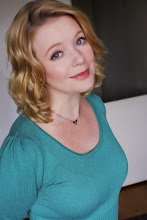For those unfamiliar, Bill Willingham is the author of a series of comic books called Fables, which are based on the idea of characters from fairy tales and nursery rhymes crossing over into our world, seeking refuge from the war-torn, cursed, etc. realms of their origin. Willingham has branched out with this idea, writing novels about these characters as well. Peter and Max is the story of two brothers, Peter and Max Piper, whose centuries-long enmity comes to a head in our own time and world.
Throughout the novel, Willingham bounces back and forth between the present, human-dominated (called Mundy, short for Mundane) world and the Fabled realm of long ago. This is highly effective for setting up LOST-esque questions about the characters' personal histories. For example, why these two brothers hate each other so much, or why Peter's wife, Bo Peep (yup, that Bo Peep) is bound to a wheel chair, unable to use the lower half of her body. Throughout the flashbacks covering the brothers' history, each question or mystery is gradually addressed and answered. The current, Mundy setting covers Peter's quest to find his brother for what will hopefully be their final confrontation. While this approach definitely has its perks, I found the disconnects a bit jarring at times. I found myself having to flip back to previous chapters to refresh my memory regarding small, yet important details.
Another interesting touch Willingham used was his approach to Max (who turns out to be the Pied Piper of Hamelin in the darkest version of the story). The Fabled are a race full of characters who live in a moral gray area, which I always find interesting. I have a thing for characters with questionable motives, or quests for redemption that may or may not be sincere. However, as the main antagonist, Max is just out and out evil. He starts off as a selfish, greedy, lazy, spiteful boy, yet you still have a shred of hope for him. By the end of the book's first quarter, he is driven to full on evil by a combination of loss, trauma, and his own hateful nature. There's no justifying a single awful thing he does, and even when he tries to do so, his self-serving arguments are just laughable. Having just come off of Lolita, I did find this a refreshing change on a certain level. However, I still found myself much more intrigued with the harder-to-pin-down supporting characters, such as a powerful witch of questionable loyalties, or Bigby, the Big Bad Wolf himself, who seems now bound and determined to earn his redemption.
While I dug the story for light, fluffy entertainment, something about it just failed to really grab me. I guess I would describe the author's overall tone as Gaiman-lite. Perhaps I would have liked it more if he spent less time describing and mapping out every single character and location in painstaking detail, and more time weaving a more complex narrative, or going a bit deeper with Max's antagonism. Even when considered as a book for younger readers, I'd have to say that Gaiman's The Graveyard Book packs much more of an ideological and emotional wollop. But I'm not turning my nose up at this book, either. It was enjoyable. I think I was just hoping it would be more.
Subscribe to:
Post Comments (Atom)

No comments:
Post a Comment